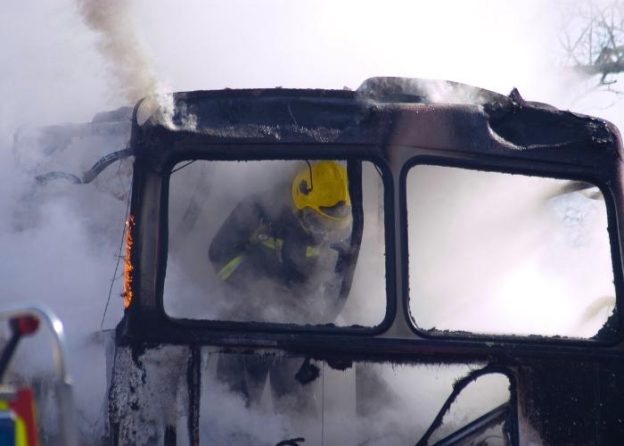Who Gets the Money From a Wrongful Death Lawsuit in Georgia or South Carolina?
There is no amount of money that can ever truly make up for the loss of a loved one. However, if someone in your life was killed due to the negligence or recklessness of a person, you may have the right to file a wrongful death lawsuit and seek financial compensation.
While this obviously can’t ever truly make things right, it can at least help grieving families seek accountability and closure, and ease any financial challenges that result from the unexpected loss of a family member—including funeral expenses, wage losses, and payment of debts.
However, wrongful death claims are often very complex, and the insurance company responsible for compensating your loved one’s heirs will be looking to settle for as little as possible. During this time of incredible grief, a compassionate and experienced wrongful death attorney can act on your behalf to negotiate the best possible settlement from the insurer while you focus on yourself and spending time with your loved ones.
In this post, we’ll examine who can file a wrongful death suit in Georgia and South Carolina, and talk about how payouts are distributed.
I met with Harry Brown personally and he sat with me for 20 minutes at our initial consultation to explain everything. He even called after my surgery to see how I was doing. I met with him several more times after that and was kept informed about my case throughout. I highly recommend Harry Brown as an attorney.
What Is a Wrongful Death Claim?
In simple terms, wrongful death claims demand compensation after a loved one dies due to an at-fault party’s negligence, recklessness, or intentional action to do harm. Common causes of wrongful death include car accidents, medical malpractice, and slips and falls resulting from unsafe conditions.
It’s important to understand that, while similar in some ways, wrongful death is very distinct from personal injury cases in terms of who can seek compensation, how compensation amounts are determined, and how they are paid.
Wrongful death is also separate from criminal cases, in which an individual or organization is prosecuted by the state. Criminal cases can result in jail time or fines paid to the government, but do not financially compensate families for their profound losses. Both types of cases can be ongoing at the same time.
RELATED: What Qualifies as Wrongful Death?


Who Can File a Wrongful Death Claim?
The question of who, exactly, can file depends on the state where the claim is made. Different states have different statutes and laws. Let’s take a closer look at both states our firm serves:
Filing a Wrongful Death Claim in Georgia
In Georgia, there is an order of priority for who can file. If there are no surviving representatives at a higher level of priority, the responsibility falls to the next level down.
The priority list is:
- Spouse
- Child or children
- Parent or parents
- Administrator or executor of the deceased person’s estate
No other relatives or friends of the deceased, such as siblings or long-term unmarried partners, are ever eligible to file (unless they are the administrator of their loved one’s estate).
In most cases, you have two years after the date of the person’s death to file a wrongful death claim, although this deadline can be extended in certain cases (such as whether there is also a criminal case stemming from the same event, or if the estate isn’t going through probate).
Filing a Wrongful Death Claim in South Carolina
In South Carolina, the wrongful death claim must be filed by the executor (also commonly known as a “personal representative”) of the deceased person’s estate.
If the deceased person left a will, it would typically name an executor. If there was no will, or the will did not name a personal representative, the probate court will appoint one. Usually this falls to a spouse or an adult child. If none are available, the responsibility may fall to other heirs or relatives, or potentially even creditors.
In South Carolina, the personal representative has three years from the date of death to file a wrongful death suit.
How Is a Wrongful Death Settlement Divided?
Once again, the rules on how funds are distributed vary significantly from state to state, and in some cases can be complex.
These state rules are also quite rigid about identifying heirs and assigning shares for wrongful death settlements. In both Georgia and South Carolina, wrongful death payouts are distributed to heirs according to state intestacy laws—or in other words, the “default” inheritance rules that apply when there is no will.
Unlike a will, in which a deceased person can divide their estate however they choose to whomever they choose, wrongful death settlements must be divided precisely according to state statute, even if the person left a valid will.
Who Gets the Money From a Wrongful Death Settlement in Georgia?
In Georgia, the basic rule is that wrongful death settlements are divided in equal shares between a surviving spouse and all surviving children, but with the spouse entitled to no less than one third of the total amount.
To give you some simple examples:
- 1 Spouse, 1 child—Each receives 1/2
- 1 Spouse, 2 children—Each receives 1/3
- 1 Spouse, 3 children—Spouse receives 1/3, each child receives 2/9 (or in other words, the remaining 2/3 not paid to the spouse is split evenly 3 ways).
- No spouse, 4 children—Each receives 1/4
Grandchildren or other descendants typically do not get shares, unless their parent (the child of the deceased) is also deceased. In that case, any grandchildren would split the share that would have gone to their parent.
For example, suppose the deceased had:
- No surviving spouse
- Two surviving children
- One deceased child who had two children of his/her own
In this case, each of the surviving children would receive 1/3 each, and the two grandchildren with a deceased parent would receive 1/6 each.
If the deceased has no surviving spouse or descendants, but at least one surviving parent, the parent(s) will be the beneficiaries of the wrongful death lawsuit. If there are no parents, then any surviving siblings will be the beneficiaries.
Who Gets the Money From a Wrongful Death Settlement in South Carolina?
The main difference between Georgia and South Carolina is that, in South Carolina, a surviving spouse is entitled to not less than half of a wrongful death settlement. Looking at the same examples as we did before:
- 1 Spouse, 1 child—Each receives 1/2
- 1 Spouse, 2 children—Spouse receives 1/2, each child receives 1/4
- 1 Spouse, 3 children—Spouse receives 1/2, each child receives 1/6
- No spouse, 4 children—Each receives 1/4
Another difference in South Carolina is that, if the deceased was unmarried and had no children but has living parents, the judge can limit (or outright deny) the share of a parent if it’s determined that the parent did not support the child while they were growing up.
Otherwise, the basic process is the same as it is in Georgia.
Common Questions and Atypical Scenarios
While the above information covers most family situations, you may still have some questions. Here are a few additional things to keep in mind.
- Half relatives are counted the same as full or whole relatives.
- Foster children and stepchildren do not receive a share unless they were legally adopted by the deceased.
- Unborn children of the deceased receive a share if they are born within 10 months of the death.
- Children born outside of marriage receive a share so long as paternity is legally established (although the exact standards for this vary somewhat between Georgia and South Carolina).
- In general, every possible effort will be made to pay the wrongful death damages to surviving family members, even comparably distant ones (like uncles and aunts, cousins, nephews and nieces) if there is no living spouse, descendent, parent, or sibling.


How Are Wrongful Death Damages Calculated?
While the person filing the wrongful death claim has no control over who the beneficiaries will be, the actual amount claimed is much more subjective. Similar to a personal injury case, there can be both economic and non-economic damages.
For example, claimed damages (whether your case is in Georgia or South Carolina) can include:
- Medical bills and other necessary expenses related to the fundamental cause of the wrongful death (like a motor vehicle accident, defective product, or medical malpractice claim)
- Funeral and burial expenses
- Lost wages and financial support, which the deceased person would reasonably had earned (and used to support family members) if they had lived
- Loss of care, guidance, nurturing, and protection that the deceased person can no longer provide to their loved ones
Georgia separates damages into two categories. The first category is compensation for the “full value of life of the decedent,” which includes wage losses and lost care, counsel, and other damages. The second category specifically addresses financial losses to the estate (funeral, burial, and medical expenses) and must be brought by the executor of the estate.
South Carolina is a little different. The state doesn’t explicitly divide claimable damages into two separate categories, but considers them as a whole. Additionally, wrongful death claims in South Carolina (but not Georgia) can also include:
- Pain and suffering experienced by family members of the deceased
- Punitive damages in cases where the wrongful death was caused by exceptional recklessness or intentional malice (such as driving while intoxicated, or homicide.)
Ready to Talk to a Lawyer Who Has Your Back?


The Brown Firm: Helping Grieving Families After the Loss of a Loved One
If this sounds like a lot of information to process, you’re right.
When you’re grieving the loss of a loved one due to another party’s negligent behavior, you shouldn’t also have to worry about calculating what your wrongful death case is worth, fighting with an insurance company, and figuring out how you’ll be able to make ends meet without your loved one’s income.
The Brown Firm takes a compassionate and determined approach to wrongful death cases. Our wrongful death attorneys get to know you, your family, and what your loved one meant to you. We’ll also do the hard work of investigating the death, making sure critical evidence is preserved, building the strongest possible case we can, and aggressively representing your interests in negotiations with the insurance company.
We know that there’s no such thing as “fair” compensation for losing a spouse, parent, child, or other important family member. But you still deserve accountability, closure, and the peace of mind that comes from knowing you will still be able to provide for your family’s financial needs. Our law firm will fight hard to get you the largest settlement or verdict we can, so that you can focus on your emotional recovery and rebuilding your life.
To schedule a free consultation with one of our wrongful death lawyers, please call us today at (912) 324-2498 or complete our online contact form. We serve all of Georgia and South Carolina, and look forward to meeting you.
References
Ga. Code § 51-4-2, 3, 4, 5 (2021)
Ga. Code § 53-2-1 (2019)
S.C. Code § 15-51-20 (2021)
S.C. Code § 62-2-102 (2013)
S.C. Code § 62-2-103 (2013)
The content provided here is for informational purposes only and should not be construed as legal advice on any subject.
Our Recent Personal Injury Articles
E-Bikes and Accidents: New Risks and Legal Considerations
A bus caught fire on Friday night at Ashford Dunwoody Road and I-285 West, causing delays during rush hour. The ramp was closed, and firefighters were able to put out...
Using Telematics Data to Prove Driver Behavior
A bus caught fire on Friday night at Ashford Dunwoody Road and I-285 West, causing delays during rush hour. The ramp was closed, and firefighters were able to put out...
Why Teenagers are the Most Dangerous Drivers on the Road
A bus caught fire on Friday night at Ashford Dunwoody Road and I-285 West, causing delays during rush hour. The ramp was closed, and firefighters were able to put out...
Slip and Fall Accidents in Retail Stores: Who’s Liable?
A bus caught fire on Friday night at Ashford Dunwoody Road and I-285 West, causing delays during rush hour. The ramp was closed, and firefighters were able to put out...
Bicycle Accidents: A Growing Concern for Urban Cyclists
A bus caught fire on Friday night at Ashford Dunwoody Road and I-285 West, causing delays during rush hour. The ramp was closed, and firefighters were able to put out...
Understanding Nursing Home Abuse: Signs, Symptoms, and Solutions
A bus caught fire on Friday night at Ashford Dunwoody Road and I-285 West, causing delays during rush hour. The ramp was closed, and firefighters were able to put out...
Slip and Fall Accidents in Hotels: Establishing Liability
A bus caught fire on Friday night at Ashford Dunwoody Road and I-285 West, causing delays during rush hour. The ramp was closed, and firefighters were able to put out...
Types of Nursing Home Abuse: Physical, Emotional, and Financial
A bus caught fire on Friday night at Ashford Dunwoody Road and I-285 West, causing delays during rush hour. The ramp was closed, and firefighters were able to put out...
Rabies and Other Infectious Diseases Transmitted by Dog Bites
A bus caught fire on Friday night at Ashford Dunwoody Road and I-285 West, causing delays during rush hour. The ramp was closed, and firefighters were able to put out...
Lane Splitting and Motorcycle Accidents: Legal Perspectives
A bus caught fire on Friday night at Ashford Dunwoody Road and I-285 West, causing delays during rush hour. The ramp was closed, and firefighters were able to put out...
Contact The Brown Firm
Get the Answers and Compensation You Deserve
You’ll notice the difference when you contact The Brown Firm! Our local dedicated attorneys want to help you recover and rebuild.
Schedule your free consultation by calling (800) 529-1441 or completing our simple online form.

